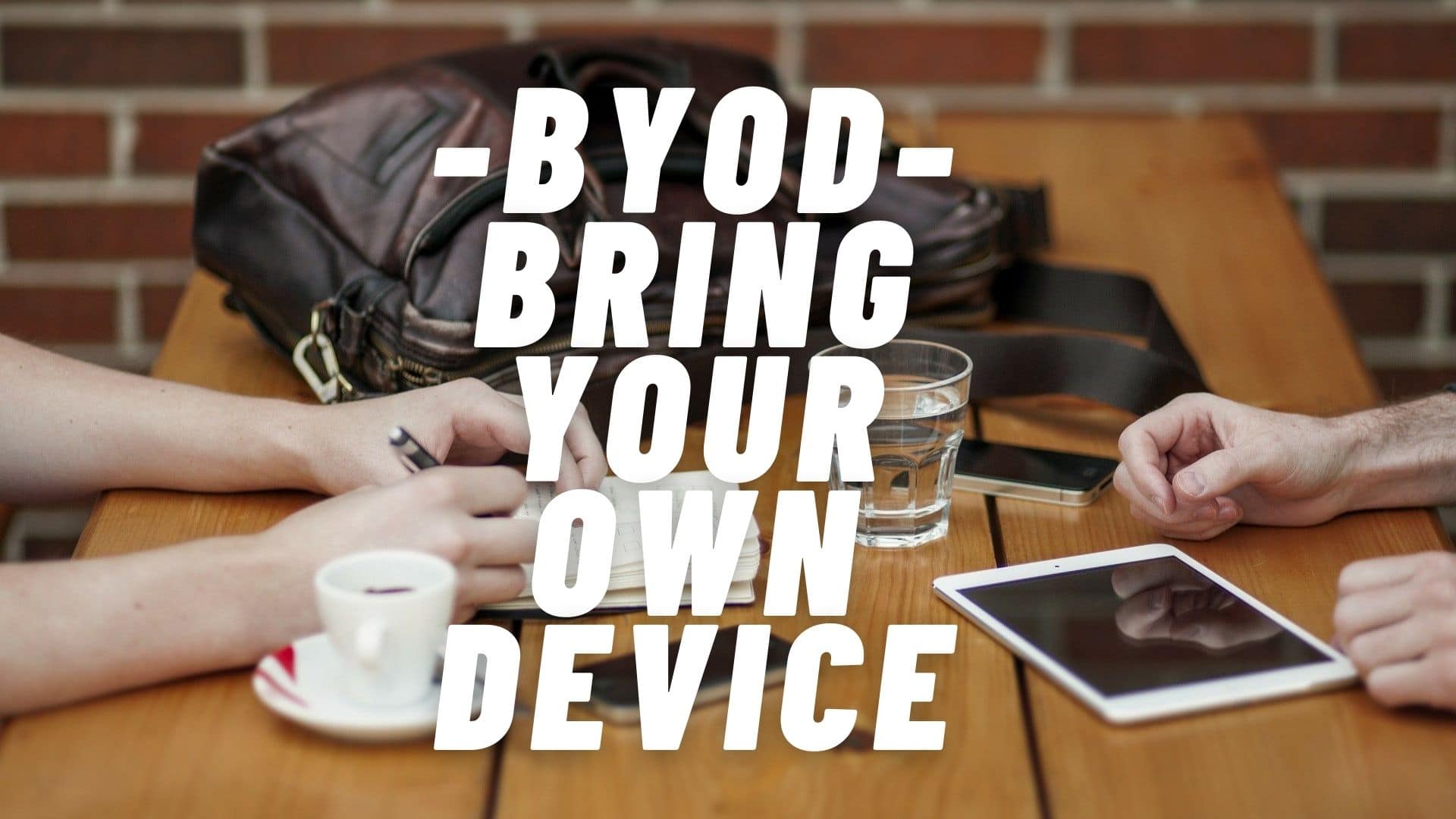In this article, we will be looking at BYOD – BYOD is an acronym for Bring Your Own Device. This method of working will allow you to save money on leasing a new device and it can also help your church office run smoother by eliminating the need for so many devices to be owned by the church. There are some pros and cons of BYOD, but overall it’s a great way to get things done!
Why Bring Your Own Device?
In recent times, more and more people have become owners of powerful mobile phones, tablets, laptops, and other devices. For an individual, the cost can be managed, and for some devices, the user may be on a monthly contract.
If a church wanted volunteers or staff members to use electronic devices to accomplish work within the church office or a church service, the cost of ownership could run into many thousands.
BYOD makes sense when you consider how many people own and use their own devices to accomplish personal tasks. BYOD is an efficient way for your church office to get things done without the need of spending money on leasing or buying expensive equipment.
BYOD Policy
A BYOD policy should include the following information:
– what BYOD means (Bring Your Own Device)
– who is eligible to use BYOD
– when BYOD can be used, for example, any time outside of weddings or funerals, or whatever suits your church.
The BYOD policy needs to allow church volunteers and church staff to use their personal mobile phones, tablet or laptop for church work. This reduces paperwork and allows church members to volunteer more hours each week without the need of a church device.
However, it is important that any device is approved by your IT/tech team beforehand. Some older devices may present security risks or may have other reasons why they may be unsuitable for use in a church setting.
Security is paramount, so only allow devices to connect to your church office network that you trust. Ensure anti-virus measures are in place, where appropriate, and look at the implications for data protection and GDPR. Many churches find it best to implement a “church email” address (eg [email protected]) for staff and volunteers to help control the flow of information and keep it within the church bounds.
BYOD Pros and Cons
The BYOD policy has various pros and cons. Here are some of the key ones:
PRO: church members have instant access to church-related information on their own devices which can be used privately or shared with others at church. For example, church office staff could put a church document on a church member’s Dropbox account so it can be accessed.
CON: church members may want to use church information to pursue their own interests or business. This could be a serious issue that needs to be addressed, but it’s also a consideration for any tablet/laptop/phone user – BYOD just makes it easier for church members to use church information.
PRO: church office staff can share church documents over email or via other means on the church network without the need of purchasing new equipment or dongles.
CON: church office staff need to be trained in using personal devices for church purposes, and risk exposure of church data if they forget to apply church security protocols.
PRO: church office staff don’t need to worry about the ongoing costs of leasing or buying devices. This is more sustainable and cost-effective for church budgets.
CON: church office staff lose the comfort of always having a church device, or losing that device means losing some church work in progress. Use cloud-based storage or backups to minimize the chance of data loss, such as Dropbox, OneDrive, or Google Drive.
In Conclusion
The chances are that there are already some people in your church using their own devices to do work for the church. Consider making BYOD part of your church’s culture, or at least consider whether BYOD will provide any benefits for your church office.
Church employees should always bear in mind that they are representing the church when using personal devices in the church office. So church employees need to be transparent with church members and church visitors.
There may also be church members that won’t expect church employees or church volunteers to use their own device for church purposes, so it’s important that church employees and volunteers always aim to make the best impression when using personal devices in a church setting. Church emails, email signatures, and other “branding” will help to overcome this.
The BYOD policy also needs to be communicated clearly, so church members know what their church employees and church volunteers can use their own devices for.
Overall, a BYOD policy can help any church advance with its tech goals, and it helps to keep the cost down too.

